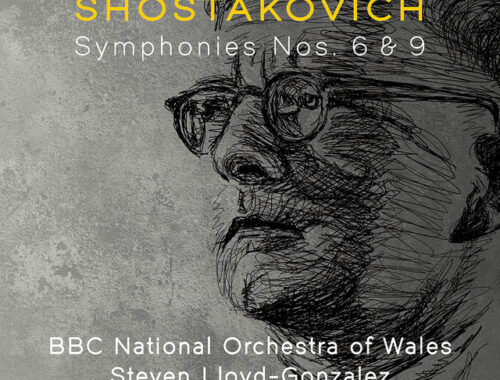GRAMOPHONE Review: Bernstein Symphonies Nos. 1 & 2 – Baltimore Symphony/Alsop
 A disc of two halves, for sure: a somewhat sober “Jeremiah” and a scintillating “Age of Anxiety”. Perhaps there is simply no reply to Bernstein’s feverish intensity in both his recordings of the former; the latter, of course, has the poetic Jean-Yves Thibaudet as protagonist and he is very much a chip off the Bernstein block. There’s a chemistry, too, with Marin Alsop that is tangible throughout.
A disc of two halves, for sure: a somewhat sober “Jeremiah” and a scintillating “Age of Anxiety”. Perhaps there is simply no reply to Bernstein’s feverish intensity in both his recordings of the former; the latter, of course, has the poetic Jean-Yves Thibaudet as protagonist and he is very much a chip off the Bernstein block. There’s a chemistry, too, with Marin Alsop that is tangible throughout.
Both pieces deal with self-doubt – or if you prefer, a crisis of faith – in differing ways, though the First Symphony’s self-confidence could hardly have been greater, asserting itself for all to hear just months after Bernstein’s unexpected but sensational New York Philharmonic debut in 1943. A double whammy. Its rather filmic immediacy requires a degree of abandon and assurance in the way it is delivered and my impression of this performance with Alsop’s Baltimore Symphony is one of too much objectivity – a step back from what was clearly so personal a motivation for Bernstein.
There is nothing wrong with it, per se – it unfolds with direction and dignity. But you notice something withheld at the big climaxes, not least the pulverising pedal note which moves us towards that of the first movement, and even the paganistic scherzo (notwithstanding brave trumpets) tenders a somewhat muted profanity. Jennifer Johnson Cano brings depth of tone and a noble resolve to the concluding Lamentation and just for once Lenny’s cathartic pay-off is deafeningly quiet.
Never was our innate solitude as human beings more tellingly invoked than in the two-part clarinet counterpoint which opens the Second Symphony. The inspiration for it was W H Auden’s staggeringly virtuosic poem The Age of Anxiety – a nocturnal odyssey which Bernstein ingeniously chronicles as a dark night of the soul expressed in variation form as “The Seven Ages”. But the trick of having each variation evolve from some aspect of the preceding one makes not only for a sense of “destination unknown” but a chain-reaction of new beginnings. Thibaudet is our “everyman” exhibiting great flair and resilience on the journey – with the keenest partners in Alsop and the Baltimore Symphony – and in the extraordinary and quite unexpected “Masque” where Bernstein takes a cut cabaret song from his first Broadway musical “On the Town” and folds it into a jazzy divertissement for piano and percussion the Frenchman, with great lightness and piquancy, has his fingers skipping across the keys like yet another dance routine for the New York based show. But it is in the work’s most reflective pages at the start and towards the finish that Thibaudet unlocks the loneliness in us all. Never be deceived by his flamboyance. He is the most soulful of players. His introverted solo just prior to the work’s apotheosis is just SO beautiful.
And, of course, there can be no more vivid manifestation of Bernstein’s need for catharsis than the final pages anticipating as they do Marlon Brando’s courageous walk into cinema history at the close of On the Waterfront, Bernstein’s only movie score.
“The Age of Anxiety” is a cracker of a piece and this excellent performance, splendidly engineered, amplifies that view in every way. Symphonic form, like musical theatre, is always hungry for a new direction.


